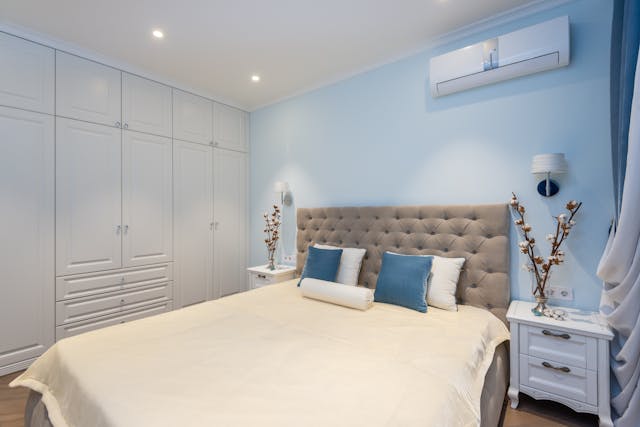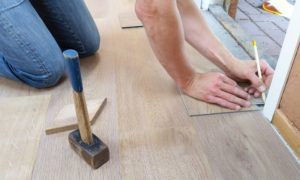Have you ever had your relaxing evening ruined by the sound of wind or rattling from your vents? Noisy vents may be the biggest hassle that prevents restful sleep, interrupting concentration and turning your once peaceful house into an annoying reminder of the air circulating within. Ventilation, which is critical in maintaining a healthy environment and fresh air, becomes a noisy nuisance. The good news is that we could reduce the noise at the vent, and it is doable. You will not only be able to recognize the reasons for the sound noise from the vent if you use the multi-faceted approach, but you will also be able to create a more relaxing and peaceful home.
Table of Contents
Understanding Vent Noise: Sources and Causes
Our houses are equipped with numerous vent types that are responsible for home ventilation. HVAC vents are responsible for relaxing/circulating conditioned air throughout your room/space, bathroom fume exhaust fans chase moisture or odor out of the bathroom, and range hood vents capture the fumes during cooking from the range/stove. This is true, but despite their importance, the vents can give off inappropriate noise.
There are several reasons why vents might produce excessive noise:
- High Air Velocity: When the air is forced through the vents at a fast pace, a whooshing sound can be heard. This is typically noticeable with very old HVAC systems or the case of venting that is not properly sized.
- Loose Components: Over time, parts of vent compositions like grilles, dampers, or ductwork connections can become loose, causing a rattling sound while the air flows through them.
- Improper Installation: Poorly installed vents and ducts can cause air leakage and turbulence, which may result in audible sounds.
- Vent Design and Material: Vent layout and particular materials also affect noise level. Unlike other types, the type of vent style may significantly contribute to noise generation.
The Impact of Vent Noise: Beyond Annoyance
The sound from the vents goes beyond merely a source of annoyance. Chronic exposure to vent sound can disrupt sleep, concentration while working or studying, and stress in general. Numerous studies point to the noise level as having an impact on our health, bringing about headaches, fatigue, and even cardiovascular disease rates. Fixing the vent makes it a crucial issue for a home because it would make a healthy and calm room for living.
Strategies for Vent Noise Reduction: A Multi-Pronged Approach
Luckily, there are several tactics you can use to control vent noise in your house. The best way to ensure low noise levels in the surroundings is to use a multi-pronged approach that tackles different aspects of noise generation.
- Maintenance is Key: Regular maintenance is very important to provide the best air movement and eliminate vent noises as much as possible. Perform regular cleaning of your vents and air filters to prevent dust and debris accumulation, which obstructs airflow and leads to higher noise levels.
- Optimize Vent Settings: Some exhaust fans have speed controls. Try out various lower settings of the fan to achieve a combination of the air removal, one being efficient and another noise reduction.
- Silencing Solutions: For certain cases, silencers can be attached to HVAC vents to cancel some of the noise. They are made of sound-absorbing materials and the volume of the sound waves that get through the vent is reduced as the air passes by. Go to the websites to explore current sound and noise reduction choices, or seek help from a certified HVAC specialist.
- Soundproofing Materials: In some instances, soundproofing materials installed around vents and ducts can be an ideal solution. Nevertheless, such a plan can become complicated, and even a professional’s help might be required to guarantee that the installation won’t reduce airflow.
When DIY Fails: Seeking Professional Help
Although some DIY solutions get rid of the vent noise, there are cases when professional assistance is indispensable. Here are some instances where seeking help from a qualified HVAC technician is recommended:
- Worn-Out Vents: Over time, vents can become worn or damaged, making noise irritating. A professional can review your vents and suggest a new supply if necessary.
- Installation Issues: If the noise is from a faulty vent or ductwork installation, a person with working knowledge can identify the problem and make the required repairs.
- Complex Ductwork Problems: Complex ductwork systems may require a professional look-over and noise reduction solutions tailored to the floor plan and specific system configuration.
Living With Less Vent Noise: Long-Term Solutions
In addition to implementing solutions for the current noise problems, long-term plans should also aim to lto lower noise during repairs and updates. When replacing vents, select models distinguished by their noise-absorption properties. You should also take noise level into account while picking a new HVAC system, newer and more energy-efficient models execute pretty silently. Visioning that arises from the creation of your soundless house not only protects you from irritating noise and allows you to have a peaceful dwelling.
Conclusion
Noise reduction can make your home much more comfortable and peaceful. You can make your home more peaceful by identifying the sources of noise, applying the strategies listed above, and getting expert advice if issues are complex. Keep in mind that a little effort spent on reducing the noise coming from vents can supply a substantial gain. This is manifested by the fact that you can enjoy a quieter, healthier, and more relaxing environment. Hence, with the replacement of white noise with the magical silence experience, you will relish the silence of your household!
Featured Photo by Max Vakhtbovycn: https://www.pexels.com/




